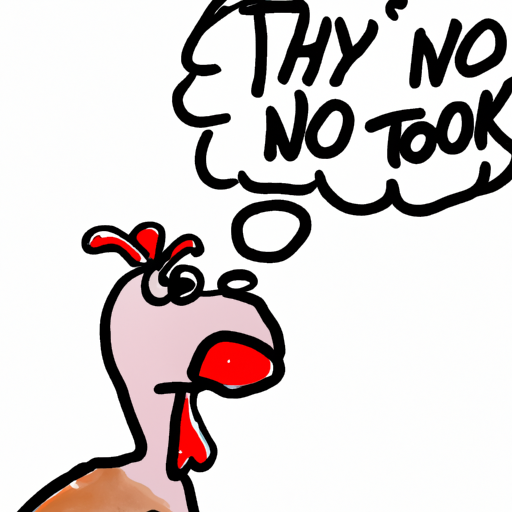As a caregiver, it’s natural to want to share the joy of a festive holiday meal with your canine companion. However, certain foods that are perfectly safe and healthy for humans can be harmful to dogs. In this article, we will delve into the reasons why dogs can’t eat turkey.
1. High Fat Content
Turkey, particularly the skin, has a high fat content. This can be a problem for dogs because it can lead to a number of health issues.
-
Pancreatitis: The consumption of high-fat foods can trigger a sudden inflammation of the pancreas, known as pancreatitis. This can cause severe abdominal pain, vomiting, and diarrhea and may require hospitalization.
-
Obesity: Regularly feeding your dog high-fat foods can also contribute to obesity, which can lead to a variety of other health problems including diabetes, heart disease, and arthritis.
| Health Issue | Symptoms | Treatment |
|---|---|---|
| Pancreatitis | Severe abdominal pain, vomiting, diarrhea | Hospitalization |
| Obesity | Weight gain, difficulty moving, shortness of breath | Diet and exercise |
2. Seasonings and Spices
Many of the seasonings and spices we use to flavor our turkey are toxic to dogs.
-
Onions and Garlic: These ingredients can cause anemia in dogs, which can lead to fatigue, weakness, and shortness of breath.
-
Salt: High levels of sodium can cause excessive thirst and urination in dogs, and in extreme cases, sodium ion poisoning.
-
Nutmeg: This spice is toxic to dogs and can cause seizures, tremors, and central nervous system damage.
Remember, these are just a few examples. There are many other seasonings and spices that can be harmful to dogs.
3. Bones
Turkey bones pose a serious risk to dogs. They can splinter and cause damage to your dog’s mouth, throat, or digestive tract. In some cases, they can even become lodged and cause a blockage, which is a life-threatening situation that requires emergency veterinary care.
4. Food Allergies
Just like humans, dogs can also suffer from food allergies, and turkey is a common allergen. Symptoms of a food allergy in dogs include itching, skin rashes, ear infections, and gastrointestinal problems like diarrhea and vomiting.
5. Overfeeding
Overfeeding can cause gastrointestinal upset in dogs. Even if the turkey itself is not harmful, feeding your dog too much of it can lead to diarrhea, vomiting, and other digestive problems. Always remember to moderate the portion sizes when feeding your dog.
FAQs
1. Can dogs eat turkey at all?
It’s not that dogs can’t eat turkey. In fact, many commercial dog foods contain turkey as a primary ingredient. The problem arises when the turkey is high in fat, covered in harmful seasonings, or contains bones.
2. Can I give my dog turkey if I remove the skin and bones?
Yes, if you remove the skin and bones, and make sure the turkey is not seasoned with anything toxic to dogs, it should be safe for your dog to eat in moderation.
3. How should I react if my dog accidentally eats turkey?
If your dog accidentally eats a small amount of turkey, they will likely be fine. However, if they eat a large amount, or if they consume turkey bones or turkey seasoned with something harmful, it’s best to contact your vet immediately.
4. What are some dog-safe alternatives to turkey?
If you want to include your dog in the holiday feast, consider making them a special meal with dog-safe ingredients like plain, cooked chicken, sweet potatoes, and green beans.
5. What other foods should I avoid giving my dog?
Other common foods that are harmful to dogs include chocolate, grapes, raisins, avocados, alcohol, and caffeine. Always check with your vet if you’re unsure about feeding your dog a certain food.
Caring for a dog is a rewarding experience, but it also comes with a lot of responsibility. It’s important to know which foods are safe and which are not. Remember, when in doubt, it’s always best to err on the side of caution and avoid feeding your dog anything that could potentially be harmful.



